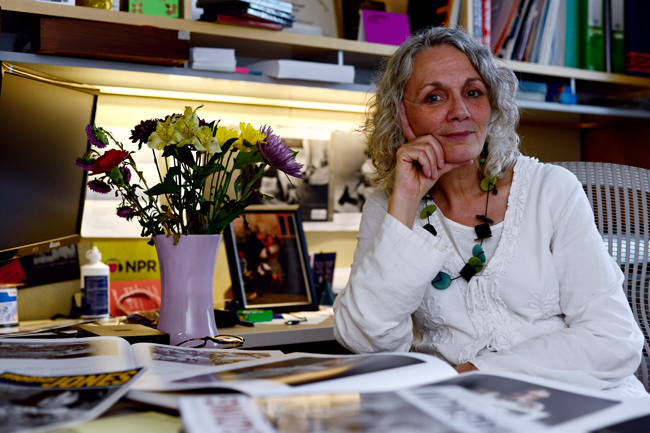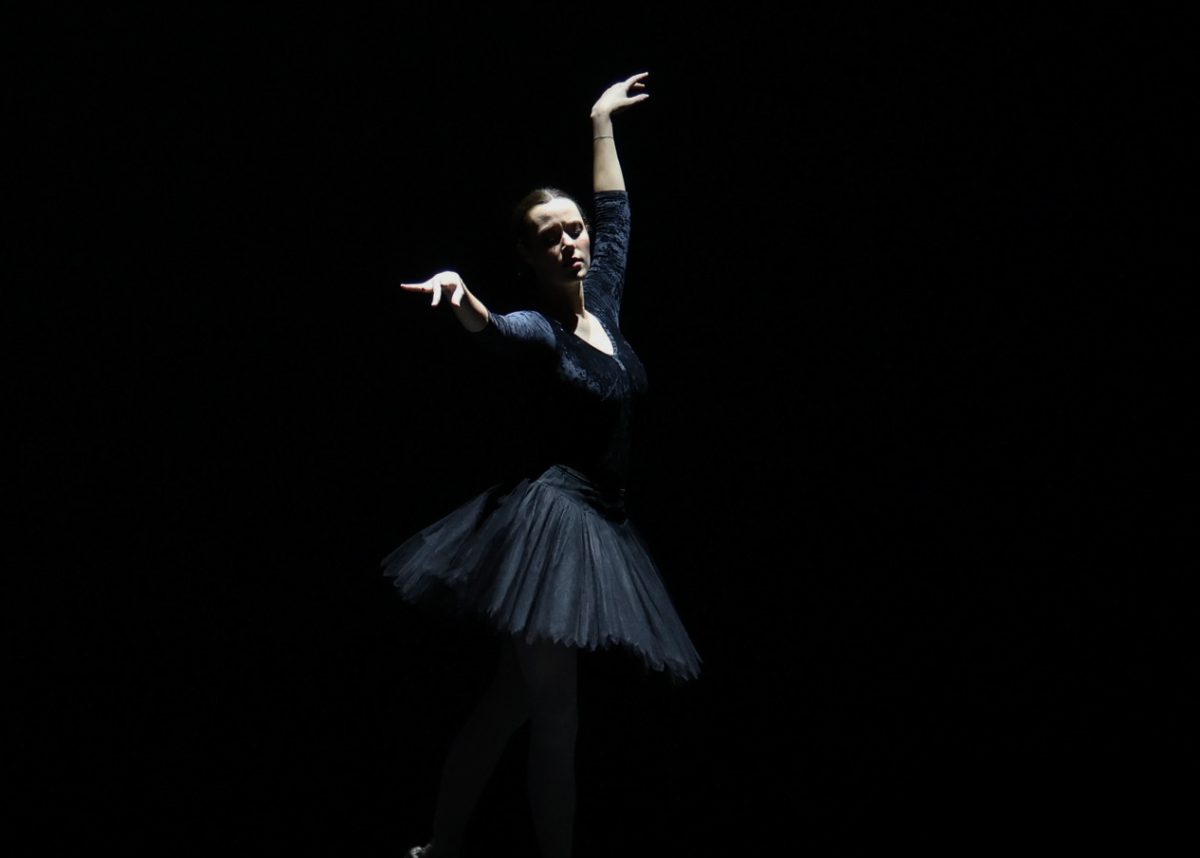As a photojournalist immersed in a world of gang violence and poverty, Donna DeCesare brings visceral images of Latin America to an international audience. A bilingual adventurer, a compassionate commentator and a UT journalism associate professor, DeCesare is now the recipient of journalism’s oldest award, the Maria Moors Cabot Prize.
DeCesare didn’t always dream of becoming a world-renowned photojournalist. The daughter of Irish and Italian parents, she was the first one in her family to attend college, studying English literature and the writings of James Joyce at SUNY College at Buffalo and Essex University in England. She began to explore her Irish heritage, frequently visiting parts of Northern Ireland and using her hobby, photography, to capture images of conflict.
“I knew that even though I loved academia, there was a part of me that wanted to be out in the world,” DeCesare said.
DeCesare used her skills as a writer, photographer and videographer at Irish news publications during the 1980s. Coverage of political strife in Ireland cemented her interest in the violent happenings of Central and South America. After meeting with members of the “Sanctuary Movement” and aiding victims of political persecution in Latin America, DeCesare decided to move to Central America.
“That’s when my life really changed,” DeCesare said. “It was an experience seeing how people live in other parts of the world and a level of poverty and injustice that I had not known in my own country.”
She has since won recognition from the National Press Photographers Association, received the Dorothea Lange-Paul Taylor Prize from the Center for Documentary Studies at Duke University and participated in the Fulbright Scholar Program. Her photographs and multimedia projects have been featured at international venues and most recently earned her the 2013 Cabot Prize, an award historically given to international journalists contributing to Inter-American understanding.
Rosental Alves, journalism
professor and DeCesare’s colleague, said DeCesare’s commitment to the lives of her subjects has pushed her far beyond the realm of her contemporaries.
“When virtually all American journalists left El Salvador after the end of the Civil War, Donna stayed to follow the post-war situation and noticed the formation of the gangs and how the bloodshed somehow started again, especially in the capital city, San Salvador,” Alves said in an email.
DeCesare has taught at UT for 11 years, using her career to unlock students’ potential as storytellers.
Alejandro Martinez-Cabrera, a former student of DeCesare, learned both professionalism and passion from DeCesare.
“She has a heart that guides her toward the right places, the sensibility of an artist for beautiful, nuanced compositions, the talent to achieve technical excellence and the courage to love her subjects and become a perpetual part of their lives,” Martinez-Cabrera said.
In a world deluged by NGO marketing, social media and individual branding, DeCesare said people need to remember why they are journalists in the first place.
“When I was a young photographer, [photojournalism] was about showing the most dramatic images depicting the horrors of war. That was what we thought would grab people’s attention,” DeCesare said. “But we need to tell stories on a human level so that people want to be engaged and actually believe that they have the ability to change things.”















